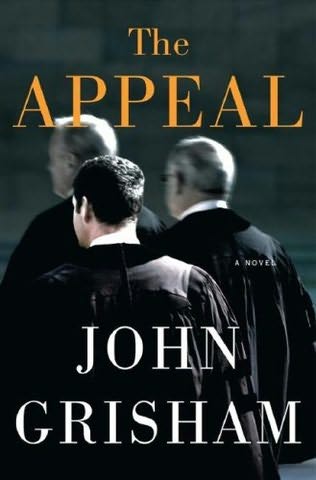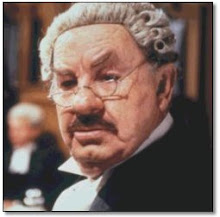The Unfinished Grisham ...
I was a John Grisham fan. Over the years I have been entertained, enlightened, challenged and even humbled by his work. His last book, a wonderfully researched piece of non-fiction, The Innocent Man, was thought provoking and shocking. Anyone who reads it will never look at the Oklahoma Justice System the same way again.
And, it is because I was a fan and because his work has been so good in the past that the failure of his current work, The Appeal, is so much more disappointing. My half read copy of it has been sitting on my nightstand for weeks. I have just about decide d I will not finish it
d I will not finish it. And, I have also just about decided that I will sell it to my favorite used book store instead of keeping it, the first Grisham novel I have not kept.
. And, in classic Grisham fashion, he nails the hardships of small time lawyers who take on a big case. The lesson is timeless. Small time lawyers who take on big cases almost always go broke whether they win or lose because litigating against giant corporations is inevitably a test of financial resources and staying power, not the skill of the attorneys or the case itself. The moment that one side has the money to file one more appeal, or even more motion, and the other side doesn’t have the money to respond the game is over.
If Grisham had stuck to this theme and developed his point to its logical conclusion, that is that the disparity of funding between litigants in the justice system often perverts justice, he would have had a winner. In this part of the book he was on solid ground that he, a former small town trial lawyer, understood perfectly, and he was stating facts for civilians through his fiction that every lawyer who has been in practice over a year or two takes for granted.
But, it appears that Grisham wrote a good short novel or even a novella and his publishers told him that he needed two hundred pages more to meet his quota. And given that, he launches into unlikely conjecture that stretches his credibility to the breaking point and past.
The second half of the book is a highly improbable parade of horrors about the dangers of a conservative cabal of greedy big businessmen and sycophantic evangelical leaders projecting their influence into state judicial elections and stealing justice from the poor and downtrodden victims of big business greed. Grisham's oversimplistic, melodramatic handling of very complex, multi-dimensional issues in the justice system in which both sides of the political aisle share blame lost me about half way through the book. But then, his thinly disguised attack on Judicial Watch, Focus on the Family, The American Family Association and others caused me to put the book down and not pick it up again.
There was an attempt to balance this one sided theme further with some discussion of the inherent “insider” nature of judicial elections and how bar associations and politicians do the selection of our judges and trial lawyers for the most part do the election. Grisham chose to portray this side of the equation as the underfunded champions of truth, justice and the American Way . After reading thirty or forty pages of this crap, I simply gave up. It was apparent that Grisham was writing a one sided political screed just in time for the election and I had paid him good money to do it.
. In the past, I have respected Grisham. I still respect his past work. But, fool me once, shame on you, fool me twice, shame on me. I will probably now buy Grisham’s future books in used paperback rather than new hardback since I may not be keeping them or even reading them through.
 d I will not finish it
d I will not finish it

0 Comments:
Post a Comment
<< Home